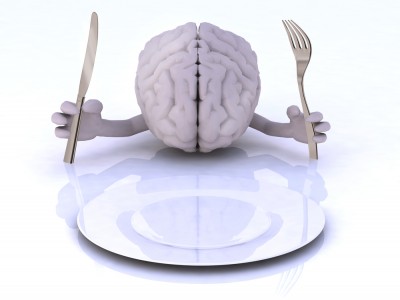Dr. Campbell-McBride explains in her book, “Gut and Psychology Syndrome”, how a dysbiosis or gut flora unbalance can impact on the development of psychological diseases, such as depression, anorexia and bulimia, obsessive-compulsive disorder, oppositional defiant disorder; as well as it can impact on neurological diseases, such as autism, schizophrenia, epilepsy, Alzheimer, etc.
After several years working with children with this kind of diseases, I would like to share one observation.
It’s important to differentiate between two different families of mental diseases: psychological and neurological. In the psychological ones, as the word say, there’s a very important component of psychology. This is why it is essential that the person follows a psychological treatment with a specialized therapist. It will be very difficult to heal a person with a pathology of this kind in a deep level if there’s not a psychological work.
In this cases, the nutritional therapy is very helpful, but it’s not enough at all. On the other side, neurological diseases, and hyperactivity and attention deficit disorder (ADD) as well, have a physiological origin, so a nutritional intervention is translated into a significant improvement, even a healing in numerous cases, with no need of any other therapy added.
Dr. Amen (1) shows that, through his studies on the brain with SPECT scanners, there is an important correlation between mental disorders and activity on the brain. So for example, he shows that people with ADD have a prefrontal cortex activity very much lower than the one of a normal person, and in fact, the more they try to concentrate, the less the activity in the brain; this is, when the more they try to concentrate, the worse they succeed. Other psychological disorders, such as anxiety, depression, obsessive-compulsive disorder, bipolar disorder, etc., are related with other disturbances in other parts of the brain.
Dr. Amen suggests a series of psychological, naturopathic and nutritional interventions to improve these diseases. And if it is necessary psychiatric medication too.
Nobody and nothing is going to avoid to feel a painful grief for a separation or the loss of a dear person, but the impact can be more or less deep, depending on the physical and psychological state of the person. Herbert Shelton (2) says that in a study about nutrition and mental factors, it was found that the emotional trauma is survived by the healthy people with a minimum of injury and leave no bad effects. But they frequently result in permanent troubles in those whose health, particularly their digestive health, has been neglected.
So it’s really worth to follow a daily correct nutrition of the body, mind and spirit, living well nourished (Living Fully Nourished).
References:
1) Dr Daniel Amen, “Magnificent mind at any age”
2) Herbert Shelton, “Hygienic Systems Vol II. The science and fine art of food and nutrition”
After several years working with children with this kind of diseases, I would like to share one observation.
It’s important to differentiate between two different families of mental diseases: psychological and neurological. In the psychological ones, as the word say, there’s a very important component of psychology. This is why it is essential that the person follows a psychological treatment with a specialized therapist. It will be very difficult to heal a person with a pathology of this kind in a deep level if there’s not a psychological work.
In this cases, the nutritional therapy is very helpful, but it’s not enough at all. On the other side, neurological diseases, and hyperactivity and attention deficit disorder (ADD) as well, have a physiological origin, so a nutritional intervention is translated into a significant improvement, even a healing in numerous cases, with no need of any other therapy added.
Dr. Amen (1) shows that, through his studies on the brain with SPECT scanners, there is an important correlation between mental disorders and activity on the brain. So for example, he shows that people with ADD have a prefrontal cortex activity very much lower than the one of a normal person, and in fact, the more they try to concentrate, the less the activity in the brain; this is, when the more they try to concentrate, the worse they succeed. Other psychological disorders, such as anxiety, depression, obsessive-compulsive disorder, bipolar disorder, etc., are related with other disturbances in other parts of the brain.
Dr. Amen suggests a series of psychological, naturopathic and nutritional interventions to improve these diseases. And if it is necessary psychiatric medication too.
Nobody and nothing is going to avoid to feel a painful grief for a separation or the loss of a dear person, but the impact can be more or less deep, depending on the physical and psychological state of the person. Herbert Shelton (2) says that in a study about nutrition and mental factors, it was found that the emotional trauma is survived by the healthy people with a minimum of injury and leave no bad effects. But they frequently result in permanent troubles in those whose health, particularly their digestive health, has been neglected.
So it’s really worth to follow a daily correct nutrition of the body, mind and spirit, living well nourished (Living Fully Nourished).
References:
1) Dr Daniel Amen, “Magnificent mind at any age”
2) Herbert Shelton, “Hygienic Systems Vol II. The science and fine art of food and nutrition”
 In a
In a 







 Gemma Calzada is a Holistic Nutritionist Ph.D. and a certified GAPS practitioner, accredited by ASCA. Her mission is to improve health through nutrition and to help people suffering from a dietary intolerance to live happily.
Gemma Calzada is a Holistic Nutritionist Ph.D. and a certified GAPS practitioner, accredited by ASCA. Her mission is to improve health through nutrition and to help people suffering from a dietary intolerance to live happily. 
